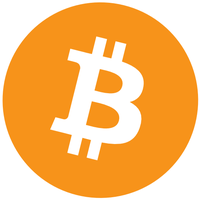The Trade War Storm: Navigating the Financial Tempest
April 8, 2025, 4:21 am

Location: United States, Colorado, East Portal Distributed Camping Area
Total raised: $70K

Location: United States, Nebraska, Omaha
Employees: 10001+
Founded date: 1839
Total raised: $1.9B
The trade war is here, and it’s shaking the foundations of global markets. President Trump’s tariffs have ignited a wildfire of uncertainty. Investors are scrambling, and the stock market is feeling the heat. The world is watching as the U.S. faces a barrage of retaliatory measures from other nations. This is not just a skirmish; it’s a full-blown conflict.
The markets are in turmoil. U.S. stock futures plummeted, signaling a third day of losses. The Dow Jones Industrial Average futures dropped over 1,000 points, a stark reminder of the volatility that grips Wall Street. The S&P 500 and Nasdaq-100 followed suit, shedding significant points. It’s a bloodbath, and the bears are out in full force.
Globally, the sell-off has spread like wildfire. Asia-Pacific markets are not immune. Hong Kong’s Hang Seng Index plunged over 10%. Mainland China’s CSI 300 fell sharply as well. Investors are fleeing to safety, seeking refuge in the Japanese yen and Swiss franc. These currencies are the lifeboats in a sea of red.
The storm clouds are gathering. The European Union is preparing its own set of tariffs, targeting $28 billion of U.S. imports. Canada and China have already retaliated. This is a chess game, and the stakes are high. Each move escalates the tension, and the consequences are dire.
As markets tumble, fears of rising consumer prices loom large. The specter of recession is haunting investors. Trump once claimed that trade wars are “good and easy to win.” But the reality is starkly different. The path to victory is shrouded in uncertainty. What does winning even look like in this scenario?
Commerce Secretary Howard Lutnick has made it clear: the tariffs are here to stay. The April 9 start date is non-negotiable. The administration is determined to reset global trade dynamics. But at what cost? The rhetoric is bold, but the economic fallout is palpable.
Treasury Secretary Scott Bessent tries to calm the waters. He dismisses recession fears, insisting that the administration is laying the groundwork for long-term prosperity. But many Americans are feeling the pinch. Retirement savings are dwindling, and anxiety is creeping in. The narrative of resilience clashes with the reality of market losses.
In the midst of this chaos, some companies are weathering the storm. Berkshire Hathaway, led by Warren Buffett, has shown resilience. The conglomerate is down less than the broader market, a testament to its diversified portfolio. Investors are flocking to safety, and Berkshire’s cash-rich status offers a lifeline.
Cryptocurrency is not immune to the turmoil. Bitcoin has fallen below $79,000, reflecting the broader market sentiment. The digital currency is down 15% this year, moving in tandem with equities. Investors are bracing for more volatility, and the crypto market is feeling the strain.
China’s response to the tariffs is telling. The Foreign Ministry stated, “the market has spoken.” This is a clear signal that they are ready to engage in a tit-for-tat battle. The imposition of a 34% tariff on U.S. goods starting April 10 is a bold move. It’s a reminder that the stakes are high, and the global economy is intertwined.
The trade war is not just an economic issue; it’s a political one. The administration’s defiance is palpable. Trump’s insistence on “hanging tough” resonates with his base, but it raises questions about the broader implications. Will this strategy pay off, or will it lead to further isolation?
Investors are left grappling with uncertainty. The market is a fickle beast, and the trade war has unleashed its wrath. Each day brings new challenges, and the landscape is shifting. The volatility is a reminder that the financial world is interconnected. What happens in one corner of the globe can reverberate across markets.
As the dust settles, the question remains: how will this trade war end? Will there be a resolution, or will it escalate further? The answers are elusive, and the future is uncertain. For now, investors must navigate this storm with caution. The trade war is a tempest, and it’s far from over.
In conclusion, the trade war is a high-stakes game. The consequences are real, and the impacts are felt across the globe. As tariffs rise and markets fall, the world watches closely. The path ahead is fraught with challenges, but resilience and adaptability will be key. The financial landscape is changing, and only time will reveal the outcome of this turbulent chapter in global trade.
The markets are in turmoil. U.S. stock futures plummeted, signaling a third day of losses. The Dow Jones Industrial Average futures dropped over 1,000 points, a stark reminder of the volatility that grips Wall Street. The S&P 500 and Nasdaq-100 followed suit, shedding significant points. It’s a bloodbath, and the bears are out in full force.
Globally, the sell-off has spread like wildfire. Asia-Pacific markets are not immune. Hong Kong’s Hang Seng Index plunged over 10%. Mainland China’s CSI 300 fell sharply as well. Investors are fleeing to safety, seeking refuge in the Japanese yen and Swiss franc. These currencies are the lifeboats in a sea of red.
The storm clouds are gathering. The European Union is preparing its own set of tariffs, targeting $28 billion of U.S. imports. Canada and China have already retaliated. This is a chess game, and the stakes are high. Each move escalates the tension, and the consequences are dire.
As markets tumble, fears of rising consumer prices loom large. The specter of recession is haunting investors. Trump once claimed that trade wars are “good and easy to win.” But the reality is starkly different. The path to victory is shrouded in uncertainty. What does winning even look like in this scenario?
Commerce Secretary Howard Lutnick has made it clear: the tariffs are here to stay. The April 9 start date is non-negotiable. The administration is determined to reset global trade dynamics. But at what cost? The rhetoric is bold, but the economic fallout is palpable.
Treasury Secretary Scott Bessent tries to calm the waters. He dismisses recession fears, insisting that the administration is laying the groundwork for long-term prosperity. But many Americans are feeling the pinch. Retirement savings are dwindling, and anxiety is creeping in. The narrative of resilience clashes with the reality of market losses.
In the midst of this chaos, some companies are weathering the storm. Berkshire Hathaway, led by Warren Buffett, has shown resilience. The conglomerate is down less than the broader market, a testament to its diversified portfolio. Investors are flocking to safety, and Berkshire’s cash-rich status offers a lifeline.
Cryptocurrency is not immune to the turmoil. Bitcoin has fallen below $79,000, reflecting the broader market sentiment. The digital currency is down 15% this year, moving in tandem with equities. Investors are bracing for more volatility, and the crypto market is feeling the strain.
China’s response to the tariffs is telling. The Foreign Ministry stated, “the market has spoken.” This is a clear signal that they are ready to engage in a tit-for-tat battle. The imposition of a 34% tariff on U.S. goods starting April 10 is a bold move. It’s a reminder that the stakes are high, and the global economy is intertwined.
The trade war is not just an economic issue; it’s a political one. The administration’s defiance is palpable. Trump’s insistence on “hanging tough” resonates with his base, but it raises questions about the broader implications. Will this strategy pay off, or will it lead to further isolation?
Investors are left grappling with uncertainty. The market is a fickle beast, and the trade war has unleashed its wrath. Each day brings new challenges, and the landscape is shifting. The volatility is a reminder that the financial world is interconnected. What happens in one corner of the globe can reverberate across markets.
As the dust settles, the question remains: how will this trade war end? Will there be a resolution, or will it escalate further? The answers are elusive, and the future is uncertain. For now, investors must navigate this storm with caution. The trade war is a tempest, and it’s far from over.
In conclusion, the trade war is a high-stakes game. The consequences are real, and the impacts are felt across the globe. As tariffs rise and markets fall, the world watches closely. The path ahead is fraught with challenges, but resilience and adaptability will be key. The financial landscape is changing, and only time will reveal the outcome of this turbulent chapter in global trade.
